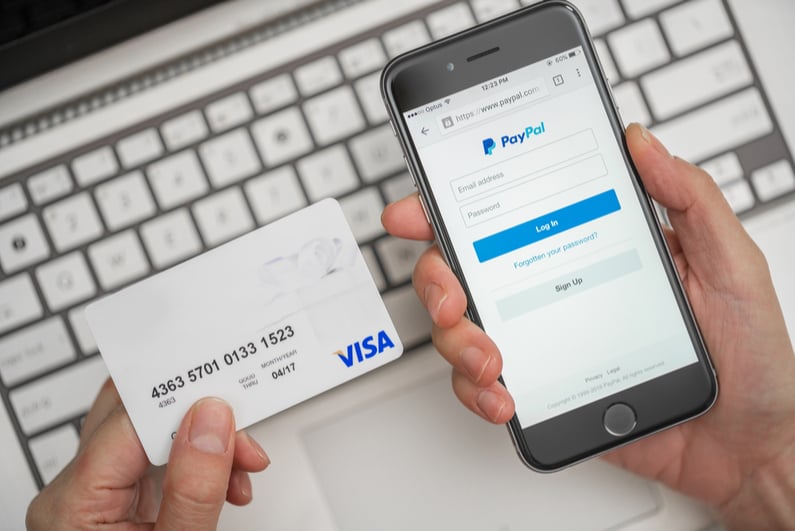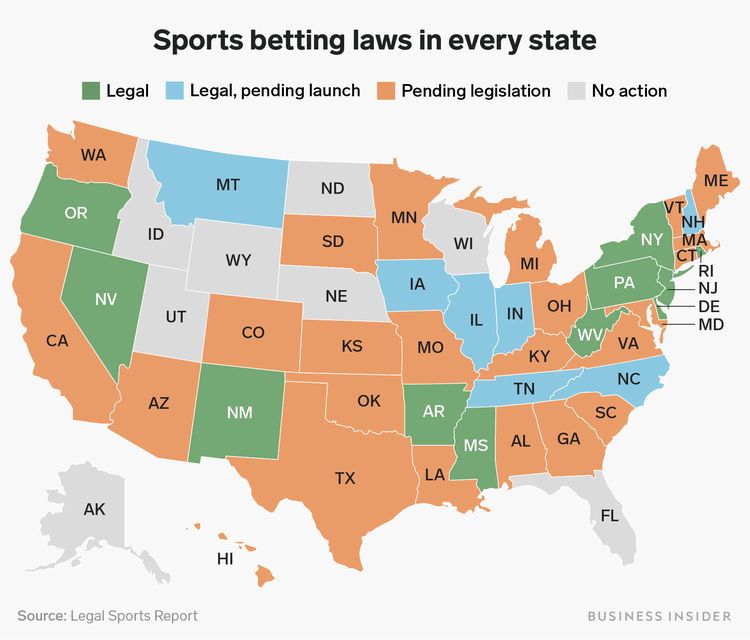Offshore Company Formation, Offshore Incorporation, Offshore Banking and Accounts. Specialists in online gaming / gambling and international business.
One of the most basic tasks when starting any small business is to set up a business bank account. Having a separate account for your business is a good idea for a number of reasons, and the process of establishing the account is usually quick and easy—if you take a little time to pull together the necessary documents before dealing with the bank.
Reasons to Open a Business Bank Account
Here are a few reasons why you should have a separate bank account for your business:
Gambling Company Stocks
- even if your business is a sole proprietorship, a separate bank account makes it easier for you to keep your business expenses separate from your personal expenses—and, by extension, easier for an accountant to assist you, should you choose to work with one
- if your business is structured as a limited liability company (LLC) or corporation, a separate bank account is necessary because your business is legally distinct from any individuals—such as LLC members and managers or corporation shareholders, officers, and directors—and the business’s accounts must be kept separate from people’s personal accounts
- a separate bank account makes it easier to compute and pay taxes for your business—including quarterly estimated taxes; and
- a separate bank account makes you look more like a real, professional business as opposed to a small and potentially unreliable operation.
Documentation You’ll Need
The documentation needed to set up the account will depend on how your business is organized: sole proprietorships require somewhat different documents from LLCs, and so on. Let’s briefly look at what’s needed for sole proprietorships, general partnerships, LLCs, and corporations.
For a sole proprietorship, you might not need anything more than a social security number—or, if you have obtained one, a federal taxpayer identification number (TIN). However, if your business requires a government-issued license, or you’ve filed a business name certificate because your business operates under a name different from your own name, you will also need the license or certificate showing both the business name and your own name.
For a general partnership, you’ll need the partnership’s TIN, a copy of your partnership agreement showing the name of your business and the names of the partners, and a business name certificate showing the business name and partners’ names.
For a limited liability company, you’ll need the company’s TIN and a copy of the articles of organization (or, depending on the state where the LLC is organized, the equivalent document, such as a certificate of formation). If the articles of organization do not provide sufficient information regarding who is authorized to sign on behalf of the LLC, you may also need an additional LLC document that does provide that information.
For a corporation, you’ll need the TIN and a copy of the articles of incorporation (or, depending on the state where the corporation is formed, the equivalent document, such as a certificate of incorporation). If the articles of incorporation do not provide sufficient information regarding who is authorized to sign on behalf of the corporation, you may also need an additional corporate document that does provide that information.
The common theme here is that you need the basic documents that substantiate the name and general nature of your business, the fact that your business is somehow registered with the IRS, and that you, personally, have the authority to set up the bank account.
Opening the Account
With the appropriate documentation in hand, you’ll need to decide what kind of bank account you want to open. More specifically, you may have options ranging from basic checking accounts that, under certain conditions, incur no monthly fees, to more expansive accounts that include additional features such as special cash management services to assist you in moving money between multiple accounts, special customer service and support, or free companion savings accounts. Regardless of the type of account you choose, you probably will also want to get a debit card for your business account. This can make it easier to pay at least some business expenses.
In many cases, you can open your account online without having to appear personally at the bank. However, some types of businesses cannot open accounts online. These include businesses that provide money services, such as check cashing, issuing money orders, exchanging currency, and wiring funds, and also telemarketing businesses, dealers in precious metals, gambling businesses, and government entities.
If you are changing the legal form of an existing business, for example from a partnership to an LLC or corporation, it’s a good idea to open a new account for the business in its new legal form. You should have your new taxpayer ID number for the business in its new form, which you can present to the bank along with the articles of organization or articles of incorporation, and any other documents that may be required. (If you choose not to establish a new account for your business in its new legal form, you will need to investigate what the bank requires to convert your existing account, and also keep careful track of checks and other records relating to your business before and after it changes form.)
Other Information
Going forward, it’s important to manage your business bank account responsibly. One potential benefit of consistently maintaining an adequate balance in your account, not writing bad checks, and sticking with the same bank over time is that you will increase your chances of obtaining a business loan from your bank should that become necessary.
Opening a separate bank account is just one of many steps for starting a new business. For more information, check Legal Guide for Starting & Running a Small Business, by Fred Steingold (Nolo) and The Small Business Start-Up Kit: A Legal Guide, by Peri H. Pakroo (Nolo).
Opening a business bank account for your new endeavor doesn't just serve to legitimize your business idea and make you a 'real' business. It's also a vital consideration for your taxes, according to tax and business attorney Barbara Weltman.
Opening a business bank account for your new endeavor doesn't just serve to legitimize your business idea and make you a 'real' business. It's also a vital consideration for your taxes, according to tax and business attorney Barbara Weltman. Besides making it harder to keep track of what to report as income and expenses, by not separating business and personal finances, you could be costing yourself--and your business--money by not taking advantage of items that can be designated as write-offs.
A business bank account allows you to easily keep track of expenses, manage employee pay, convey finances to investors, receive and deposit payment, and plan your budget more accurately. Creating a business bank account requires simple steps to get you working quickly.
One business bank account for practices including income, taxes, and payroll may be difficult to manage, especially when taxes are due. Separate accounts for separate finances may make sense depending on the depth of your business. Consult an accountant for professional recommendations before heading to the bank.
While you may love your personal bank, there may be a better account servicing option out there that relates to your business and can provide valuable expertise, especially if you require a line of credit and desire a balance transfer credit card or need cash management. It may be ideal to start the comparison process with the bank you already work with, but don't count out other options that may be a better fit for the industry you're in or that offer lower business banking costs if your budget is lean.
Also, be aware credit unions may not offer a business checking account. Other business accounts may reward business owners by waiving monthly fees if the minimum monthly account balance is maintained. Create a checklist with all your business needs, and make sure the bank you select can meet them now and grow with you as your business evolves.


Some banks will let you open a business bank account online without having to visit the bank in person. Enterprises that will typically still be required to open an account in the bank include companies providing money services, telemarketing companies, and gambling businesses.
If you choose to do business under a name that is not your personal moniker, you'll want to first check your intended business name is not already trademarked by visiting the U.S. Patent and Trademark Office's trademark search tool. Also, checking for online availability should be a naming consideration to protect your business' online presence.
Head to your county clerk office or state government office where your business is located to pay the registration fee to file for a business name, typically less than $100. To protect your new business name from trademark infringement, apply for trademark protection for typically less than $300.
Before heading to the bank to set up an account, make sure you know their requirements and what paperwork they'll need from you, since different accounts have different specifications. Often, all you'll need is a tax ID number and a social security number if you're a sole proprietor, compared to corporations that need to show articles of incorporation.
Keep in mind, the tax ID you use to open the business bank account should be your Federal Employer Identification Number, not your social security number. To obtain a tax ID number, file a request from the IRS. Use the number issued to obtain a tax ID number from the state you're doing business in. Banks will also often require a business license with both the business and owner's name, or a business name filing document.
Now that you've chosen your accounts and bank to do business with, secured your business name, and opened your business bank account, allow your business to accept payment by setting up a merchant account. A credit card merchant account is a necessity to accept credit card payment, along with your bank account and a way to process payments.
Online payment systems may be an attractive choice if your business anticipates a large volume of e-commerce transactions. An option like PayPal allows for instant payment through an email address. For in-store purchases, a point-of-sale application such as Square Register that works on Android and iPad tablets allows users to not only accept card payments, but also create sales reports and monitor sales trends to better influence your business.
As you conduct business, keep track of the following items:
Uk Bank Account For Gambling Company
Open Company Bank Account Online
You and your accountant will be better prepared to accurately submit your taxes and avoid being audited by the IRS--one less business stress to help you successfully launch and maintain your enterprise.